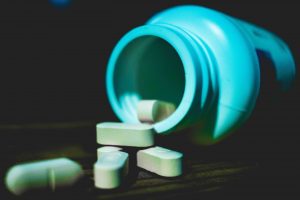 Every day we hear shocking news about the opioid epidemic, from the number of deaths from overdoses to the sheer amount of distribution arrests to the amount of money government is spending to combat the problem. One of the areas that the public may not know about, however, is how much of the problem is being created by dishonest health care professionals across the country through fraud and illegal practices.
Every day we hear shocking news about the opioid epidemic, from the number of deaths from overdoses to the sheer amount of distribution arrests to the amount of money government is spending to combat the problem. One of the areas that the public may not know about, however, is how much of the problem is being created by dishonest health care professionals across the country through fraud and illegal practices.
The Opioid Epidemic
We are bombarded with statistics about the enormity of scope of opioid use in our country. For example, in FY2016, the Centers for Disease Control and Prevention (CDC) estimated that 42,249 Americans died from opioid overdose in our country. The Substance Abuse and Mental Health and Services Administration (SAMSHA) estimates that 11.8 million Americans over the age of 12 have abused prescription opioids and heroin in the last year. The federal Department of Health and Human Services announced in September of this year that they have awarded over $1 billion in grants to “help combat the crisis ravaging our country.” Obviously, the problem is incredibly dangerous, incredibly real, and at the forefront of discussion in the US. What is not as obvious is what role healthcare fraud plays in fueling this problem.
Health Care Fraud in General
General health care fraud takes place in a number of ways through the actions of both patients and service providers. Patients commit fraud when they commit acts like, among others, faking injury or falsifying claims to somehow profit from the fraud. Health care providers commit fraud by doing things like overbilling for procedures, completing unnecessary procedures or by circumventing the law when it comes to prescription drugs and their distribution. All of these actions cost the government, the taxpayers and the public an enormous amount of money every year. The National Health Care Anti-Fraud Association estimates that health care fraud costs tens of billions of dollars per year.
Impact of Fraud on the Opioid Epidemic
How does fraud impact the opioid epidemic? There are several ways, but the focus here is on dishonest health care providers who use their position either as a nurse, physician, or pharmacist to commit fraud and more specifically those who use their position to fraudulently distribute prescription opioids to the public. For FY 2017, the Department of Justice (DOJ) announced that they had indicted more than 6,000 defendants in opioid-related investigations and seized more that $150 million from them. The DOJ has also charged almost 200 doctors and 220 other medical personnel for opioid related crimes. The DOJ also says that of those 200 doctors, 16 had prescribed more than 20 million pills illegally. In June 2018, the DOJ announced another huge enforcement action against health care professionals in which 162 people, of whom 32 were physicians, were charged with fraud. When they announced this enforcement action, the DOJ alleged one doctor defrauded Medicare for more than $112 million by distributing 2.2 million unnecessary doses of opioids like oxycodone and fentanyl. These numbers are absolutely staggering.
The type of fraud impacts the ongoing opioid problem in several ways. First, if you look at the case of just the physician above, it puts an unbelievably huge number of drugs into circulation that otherwise would not be there. Although the DOJ did not say how long that particular fraud had been going on, if we say it has been five years, then that physician was allegedly responsible for putting over 1,200 pills into circulation every single day. The second impact is that whatever resources are obtained by fraud equates to monies that are siphoned away from legitimate patients and practices. As the problem grows larger, this means government monies are being potentially diverted from prevention of substance abuse and treatment into actually making the problem worse instead of better.
How This Type of Fraud Occurs
Although there are countless permutations of how this fraud occurs, it often happens in a simple manner. An unscrupulous provider writes prescriptions for patients that either do not need them or for patients that do not, in fact, exist. The physician does this either for payment from the so-called patient or for a portion of the proceeds from when the drugs are sold illegally to other parties. The physician can stand to make huge amounts of money and, unfortunately, that is often the only motivation someone needs.
Preventing This Type of Health Care Fraud
You might wonder how this type of fraud can be prevented. There are several ways that an ordinary person can help stop this from occurring. First and foremost, if you see something that does not seem right, you need to say something to the authorities. Secondly, be rigorous in your dealings with health care providers. For example, if you are hospitalized, ask for an itemized bill to ensure that you were not billed for drugs you did not receive. Along with this, if you receive a prescription for opioids, make sure you verify that you have received your whole prescription by doing something as simple as counting your pills when you receive them from the pharmacy. Finally, you can obtain your prescription records at most pharmacies and verify your medications in a way similar to how you would monitor your credit report to guard against identity theft. Constant vigilance is the best way for the general public to combat health care fraud that is helping fuel the opioid crisis.
(image courtesy of Jonathan Perez)
 Healthcare Fraud Lawyer Blog
Healthcare Fraud Lawyer Blog


